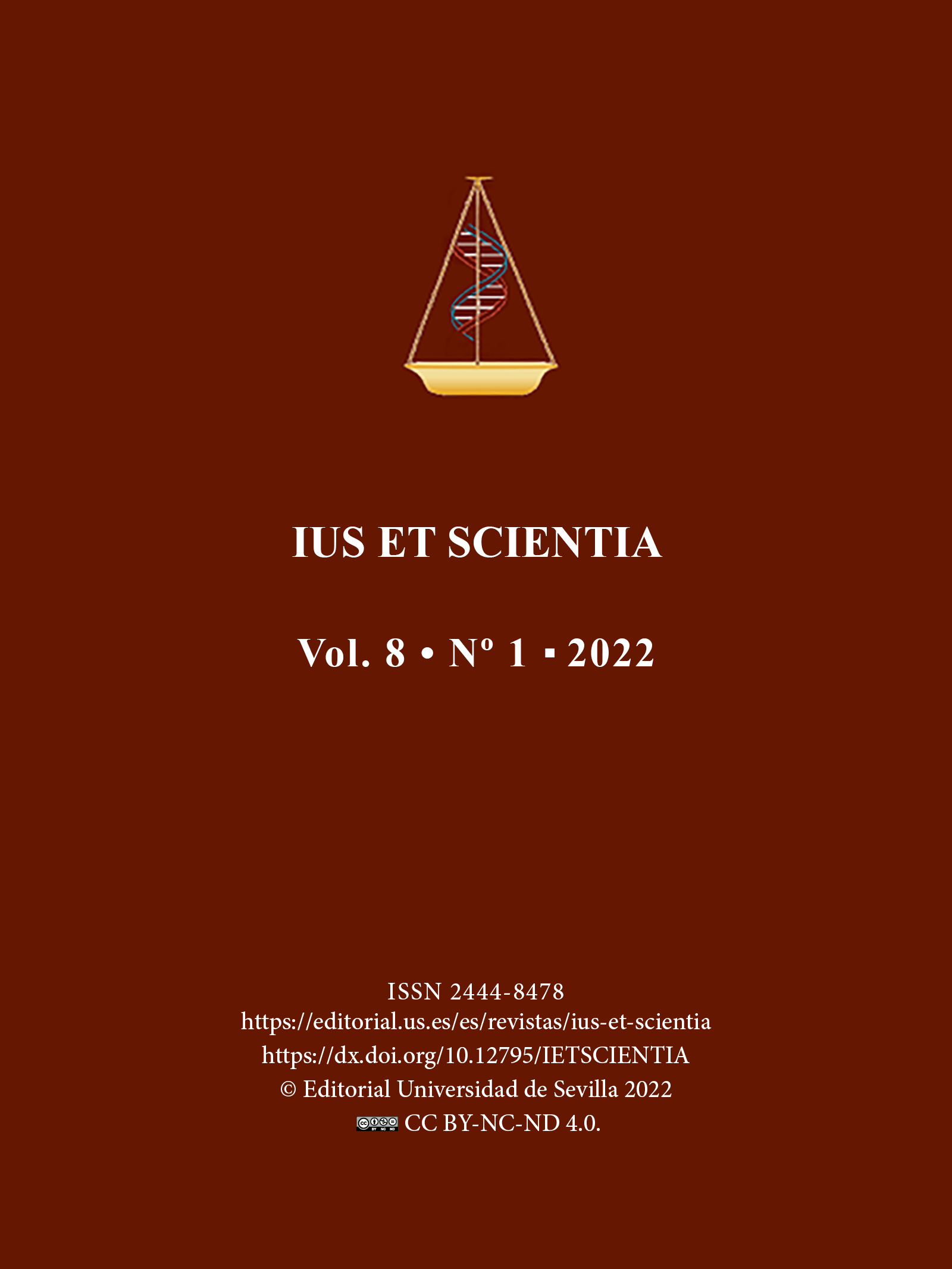Evaluation of the mexican extrajudicial odr platform in consumer matters: concilianet
DOI:
https://doi.org/10.12795/IETSCIENTIA.2022.i01.04Keywords:
CONCIALIANET, E-Commerce, Conciliation, Alternative Dispute, Resolution, Online Dispute Resolution, Federal Consumer Protection LawAbstract
CONCILIANET meant a watershed in the way of resolving disputes between companies and consumers in Mexico due to the embrace of the digital justice being the first platform in its kind in Latin America. However, 15 years after its launch, neither the platform nor its regulation has shown a significant improvement to adapt to its reality. Therefore, the objective of this article is to make a proposal to improve CONCILIANET to provide an adequate protection to consumers who contract with Mexican online companies. A documentary qualitative methodology was used to achieve the previously mentioned objective, consisting of a description and evaluation of CONCILIANET and the critical analysis of some of the main international ODR platforms and instruments of electronic commerce. In conclusion this article seeks to update and modernize CONCILIANET to the new commercial reality, so a bigger number of consumers will be able to solve their disputes in a way that is not only effective, but respectful of fundamental rights.
Downloads
References
AGUIRRE, J. (2021). Justicia digital: propuestas de innovación. Mirada Legislativa, 198. https://bit.ly/3abHSh6
AMVO. (2021). Estudio de Venta Online. https://bit.ly/2YdroTx
BALDERAS, C. (2021). Proposición con punto de acuerdo por la que se exhorta a la secretaría de economía y a la procuraduría federal del consumidor a promover el módulo denominado “CONCILIANET” entre los proveedores de bienes y servicios. https://bit.ly/3mzXMc9
CONGRESO DE LA UNIÓN. (1975). Ley Federal de Protección al Consumidor. https://bit.ly/3dkSH1U
CONGRESO DE LA UNIÓN. (2021). Constitución Política de los Estados Unidos Mexicanos. https://bit.ly/3wZiG7Z
CONGRESO DE LA UNIÓN. (2021). Ley Federal de Protección al Consumidor. https://bit.ly/3xoPVAX
GOBIERNO DE MÉXICO. (2021). Declaración de Accesibilidad gob.mx. https://bit.ly/3Dio5JE
GÓMEZ, R. (2018). Solución de Controversias por Medios Digitales en Materia de Consumo. https://bit.ly/3ckL3Fb
MÁRQUEZ, M., & DE VILLA, J. (2013). Medios Alternos de Solución de Conflictos. Biblioteca Jurídica Virtual UNAM. In Derechos Humanos en la Constitución: Comentarios de Jurisprudencia Constitucional e Interamericana II. https://bit.ly/3D42ULN
NAVA, W. (2018). Mecanismos Extrajudiciales de Resolución de Conflictos en México. Evaluación de CONCILIANET a 10 años de su creación.
NAVA, W., & BRECEDA, J. (2017). Mecanismos Alternativos de Resolución de Conflictos: Un Acceso a la Justicia Consagrado como Derecho Humano en la Constitución Mexicana. Cuestiones Constitucionales. Revista Mexicana de Derecho Constitucional. https://bit.ly/3gjWajo
PODER JUDICIAL DE LA FEDERACIÓN (2013). Semanario Judicial de la Federación y su Gaceta. Décima Época. Libro XXV. Tomo 1. https://bit.ly/2W3PIpQ
PROFECO. (2011). Informe Anual de Actividades 2010. https://bit.ly/3lCGomO
PROFECO. (2012). Informe Anual de Actividades 2011. https://bit.ly/3iWtKgA
PROFECO. (2018). Informe Anual de Actividades 2017. https://bit.ly/3vbrHLY
PROFECO. (2019). Informe Anual de Actividades 2018. https://bit.ly/3Lg6Blg
PROFECO. (2020). Informe Anual de Actividades 2019. https://bit.ly/3sCGXOz
PROFECO. (2021). ¿Qué es CONCILIANET? https://bit.ly/2ZCZSip
PROFECO. (2021). Informe Anual de Actividades 2020. https://bit.ly/3AjJShP
RENDÓN, A., & Sánchez, Á. (2015). Juicio en Línea Justo. Biblioteca Jurídica Virtual del Instituto de Investigaciones Jurídicas de la UNAM. Revista de la Facultad de Derecho de México, 65(264). https://bit.ly/39ceCqG
RUIZ, A. (2017). Módulo de Solución de Controversias. https://bit.ly/3vabiaS
SENADO. (2020). Es hora de una profunda renovación del sistema de justicia: Ricardo Monreal. Boletín. https://bit.ly/3ll4W3D
Published
How to Cite
Issue
Section
License
Copyright (c) 2022 Marco Antonio Hernández De la Cruz, Wendolyne Nava González

This work is licensed under a Creative Commons Attribution-NonCommercial-ShareAlike 4.0 International License.
Those authors being published in this journal agree to the following terms:
- Authors retain their copyright and they will guarantee to the journal the right of first publication of their work, which will be simultaneously subject to license recognition by Creative Commons that allows others to share such work provided it is stated the author’s name and his first publishing in IUS ET SCIENTIA.
- Authors may take other non-exclusive distribution license agreements version of the published work (e.g. deposit in an institutional digital file or publish it in a monographic volume) provided it is stated the initial publication in this journal.
- It is allowed and encouraged that Author s disseminate their work via the Internet (e. g. institutional digital files or on their website) prior to and during the submission process, which can lead to interesting exchanges and to increase citation of the published work.
- Abstract 185
- PDF (Español (España)) 116
- HTML (Español (España)) 37





